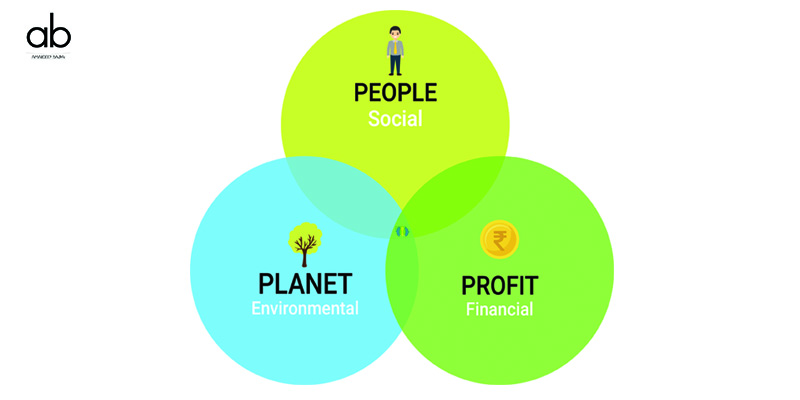The Emergence of Shared Economy has been a big game changer in today’s Digital Age. The much fabled peer to peer based business model which works on the collaboration of platform, consumers and service providers has redefined the consumption landscape. Over the last few weeks, I have been writing and sharing my opinions about how Shared Economy is a new game changer in this day and age.
The only constant is change and we are at the forefront of witnessing the greatest change in consumer trends that addresses all the elements of Triple Bottom-line of People-Planet and Profit.
Based on my observations I am putting forward a case of where Shared Economy is outscoring Traditional Models on all three constituents of Triple Bottom Line approach.
PEOPLE
The core problem with traditional business models is that an Entrepreneur especially the newly minted ones never have the access to a wider customer pool. In came Shared Economy model that solved this problem in a ziffy. It has given rise to “Micro-Entrepreneurs” across key sectors like Hospitality (AirBnB & Oyo) and Transportation (Uber & Ola). Micro – Entrepreneurs can now easily convert the consumer goods they own into rent bearing assets at a scale that was unheard of with traditional business models.
One of the biggest achievement of the Shared Economy as a business model is instilling trust amongst its community members. Companies such as Airbnb, Uber, OYO and many others have become a solution to the society for their day to day needs and problems. These trust-building efforts have helped the Shared Economy to become a constructive business based on the relationships which never existed before.
PLANET
All the companies that utilize Shared Economy Model are reducing carbon footprint and promoting a eco-friendly way of living. All economic theories point to the fact that sharing is always less resource intensive as it reduce the inherent demand for new goods to be produced. It was not long ago when ownership used to be a status symbol. The more assets were owned by someone, the wealthier one was perceived, however, since the economic depression of 2008 the mindset of collecting assets is changing. Assets have gone on to become a liability and ownership has become scarier thus paving the way for the success of Shared Economy business models. These business models have come out as a suitable option for the demands set by the consumer of today that requires fewer valuable possessions — fewer worries and reduced pressure on environment.
PROFIT
Having economic benefits is the starting point for any business. A growth in the economics of the business indicates if the idea has any potential or not. The Shared Economy business model’s major underpinning is economic benefits for its consumers which is the key to its success. Shared economy provides consumers cheap access to goods by renting or lending them from other network participants (Goods-Service Providers) viz a viz Traditional Business Models which rely on pure ownership of goods. Shared Economy model has reduced transaction costs to such an extent that billions of transactions have taken place that had no chance of taking place earlier on because the cost involved in these transaction happening through traditional models was humongous.
For any business, getting access to financing through traditional means is a big hassle. Most banks don’t find the startups to be risky, however, with the increase in the adaptation of shared economy business model Crowd funding has become an easy and convenient way of raising funds by these businesses simply by connecting people in need of money with those who are willing to give. Sometimes these major investments that are received by these startups can be a means for the investor to earn rewards that can range from the emotional satisfaction of supporting something that they care about to an equity stake in a venture which may become a potentially successful venture.
Shared Economy as a collaborative consumption model offers economic benefits for everyone. With the proliferation of online jobs and concept of GIG Economy, people can now work from their home and use their consumer goods like owned vehicle to generate an extra source of income or offer their house to travellers for a homestay earning a hospitality fee and even selling their used commodities online at a reasonable price.
Clearly we see Sharing Economy outscoring Traditional Models on economic front.
Conclusion: While these are still early days for the sharing economy and it is still rapidly evolving, the potential it holds is second to none. As technology takes giant strides forward reducing processing time, increasing capacity and a wider interconnected network, it’s only fair to assume it would keep on delivering on economic , social and environmental front.

